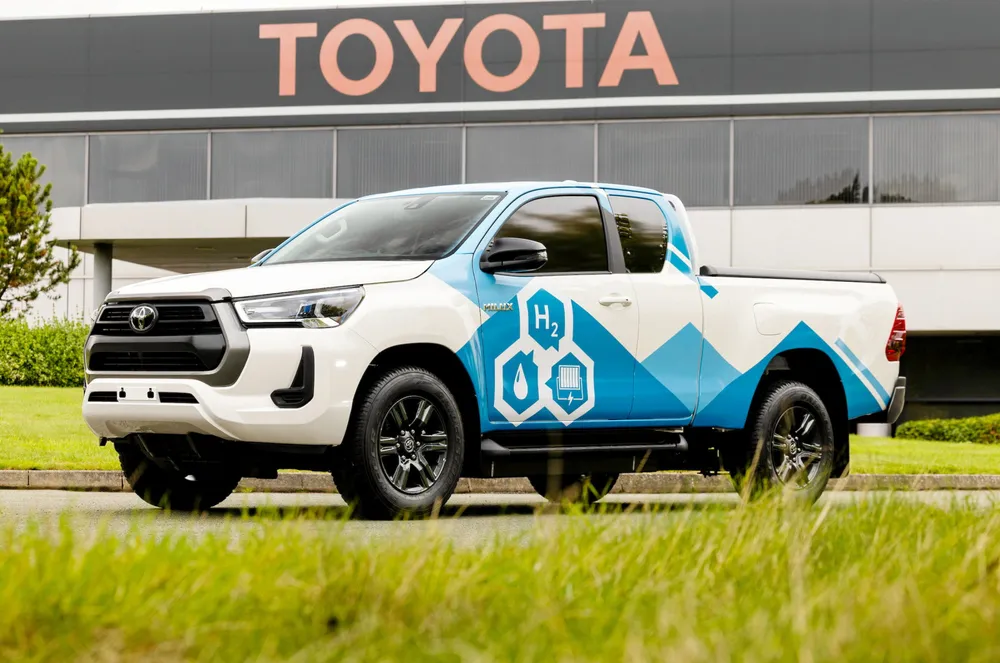Toyota unveils prototype hydrogen-powered Hilux pick-up truck, ahead of decision on future mass production
Model developed with £11.2m grant from UK government and car industry for use in 'isolated settings where electric vehicle charging is impractical'
